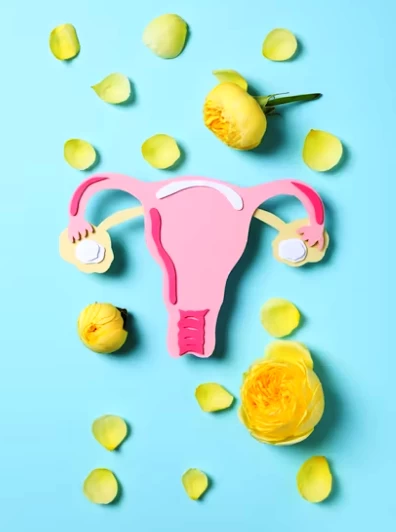
HIFU (High-Intensity Focused Ultrasound) for Vaginal Tightening
- HIFU (High-Intensity Focused Ultrasound) for Vaginal Tightening
- What Are the Causes of Vaginal Loosening?
- Why Is Vaginal Tightening Requested?
- What Is HIFU Vaginal Tightening?
- Why Should I Consider HIFU Vaginal Tightening?
- How Is HIFU Treatment Administered?
- What Should I Pay Attention to After HIFU Treatment?
- Is HIFU Effective for Vaginal Dryness?
Vaginal loosening can occur due to various factors such as normal childbirth, the aging process, weight fluctuations, and loss of tissue elasticity. This condition, along with dryness that develops during menopause, can lead to a decrease in a woman's self-confidence and cause problems in her sexual life.
Traditional surgical methods are available to address these issues, but surgery may come with unwanted side effects and complications. Additionally, some patients may have surgery-related fears or medical conditions that prevent them from undergoing surgery. In such cases, a non-surgical option for vaginal tightening and rejuvenation involves sending thermal energy to various layers of vaginal tissue to stimulate collagen and elastin production, resulting in tissue tightening.
Before delving into this method, it's beneficial to examine the causes of vaginal loosening.
What Are the Causes of Vaginal Loosening?
Vaginal loosening can occur for a variety of reasons. Here are some common causes of vaginal loosening:
- Childbirth: Childbirth can lead to the expansion of vaginal tissue. Vaginal deliveries, especially in women who have had multiple births, can contribute to vaginal loosening. Vaginal childbirth strains and reduces the elasticity of vaginal muscles and tissues.
- Aging: With the aging process, vaginal tissue can lose its elasticity and experience a loss of tightness. This can lead to vaginal loosening.
- Genetic Factors: Some women may naturally have looser vaginal tissue due to genetic factors.
- Hormonal Changes: Hormonal changes, especially during menopause, can result in vaginal tissue thinning and decreased elasticity, contributing to vaginal loosening.
- Excess Weight or Obesity: Excess weight or obesity can exert extra pressure on the vaginal area, which can contribute to vaginal loosening.
- Smoking: Smoking can negatively impact circulation and reduce the elasticity of vaginal tissue.
- Genital Prolapse: The sagging of the uterus or vaginal wall (genital prolapse) can lead to vaginal loosening.
Vaginal loosening can have a negative impact on sexual health and quality of life.
Why Is Vaginal Tightening Requested?
Vaginal tightening is a procedure that can be requested for both aesthetic and medical reasons. Here are reasons why vaginal tightening may be desired:
- Aesthetic Reasons:
- Post-childbirth changes: Childbirth can lead to vaginal expansion and loosening. Some women may consider vaginal tightening to address these changes.
- Aging: The aging process can lead to a loss of vaginal tissue elasticity, prompting some women to consider vaginal tightening.
- Personal preferences: Some women may want vaginal tightening to enhance sexual satisfaction or feel better about themselves.
- Medical Reasons:
- Urinary incontinence issues: Weakened vaginal tissue can result in urinary incontinence problems. Vaginal tightening can help improve such conditions.
- Genital prolapse: The sagging of the uterus or vaginal wall (genital prolapse) can be treated with vaginal tightening procedures.
Vaginal tightening can be performed using various methods, each with its own advantages and risks. Therefore, if you are considering such a procedure, it is important to consult with a specialized healthcare professional. They can help determine the most suitable treatment option for you. Additionally, while vaginal tightening procedures can address concerns related to sexual health and personal satisfaction, it is important to develop a full understanding of the outcomes and risks of such procedures.

What Is HIFU Vaginal Tightening?
HIFU vaginal tightening is a method that involves sending focused ultrasound waves into deep vaginal tissues using an applicator head, which allows visualization of the vaginal mucosa and submucosal layers on an ultrasound screen. This creates changes in temperature and induces a healing response in the targeted layers, leading to vaginal rejuvenation and tightening, along with the production of collagen and elastin.
Why Should I Consider HIFU Vaginal Tightening?
It is a non-surgical, painless, and non-bleeding treatment that can be performed in about 20 minutes in an office setting.
In addition to vaginal tightening, it is effective in addressing urinary incontinence issues.
It penetrates deeper tissue compared to laser methods and is safe without the risk of burning.
It does not have any impact on fertility, and normal childbirth can be performed after treatment.
How Is HIFU Treatment Administered?
• We administer a total of three sessions at monthly intervals.
What Should I Pay Attention to After HIFU Treatment?
• You can return to your normal daily life after vaginal treatment. Mild swelling in the vaginal area may occur. A sexual hiatus is generally recommended for one week.
Is HIFU Effective for Vaginal Dryness?
Especially when applied in conjunction with PRP (Platelet Rich Plasma), vaginal dryness complaints are often alleviated.






